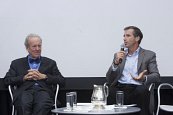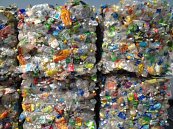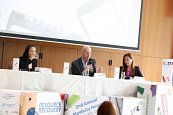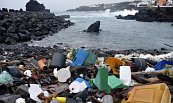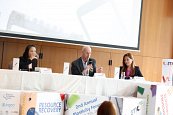Plasticity Looks at the Next Life of Plastics
Gayle Putrich
Published on 03 July 2014
More often than not, debates about end-of-life problems with plastic results in industry vs. environmentalist finger-pointing, stalemates — and no viable solutions.
But not at the Plasticity Forum. The one-day event examining the future of plastic, held June 24 at Tribeca Rooftop in New York, brought together would-be opponents for a day of collaboration and discussion on how to treat plastic as a resource and not waste.
Hong Kong Company Makes Toys out of Bioplastics
Steve Toloken
Published on 03 June 2014
See information on bioplastic toys at min 1:30 on the video clip.
California Starting the Process to Ban Plastic Microbeads from Store Shelves
Published on 31 May 2014
Microbeads have only become popular in the cosmetics market in the last decade, as a gentle exfoliating alternative to items such as ground walnut shells, which can have sharp edges that tear sensitive skin or pose an allergy risk to some consumers. But existing water treatment facilities are not designed to capture such small pieces of debris and the 0.3mm microbeads literally slip through the cracks and into the watershed.
Plastic Pollution Solutions
Published on 29 May 2014
For too long, topics about trash have been on the back burner. Litter is an eyesore, and when countries can “sweep it away,” they do. having traveled to many countries, it is apparent that not everyone has good waste management infrastructure, much less enough recycling capacity. The world has yet to scale some of the ground-breaking plastic innovations currently available, harnessing the resource value that plastic has. We believe the discussion at Plasticity can help change our ways of thinking of plastic, and waste. Plastic pollution is a global issue, but needs to be resolved at the local level.
Plastic - If You Can Measure It, You Can Manage It
Published on 29 May 2014
Plastic has many great uses, due to its light weight, flexibility in molding, and durability – yet these are also its downfalls, particularly because it is difficult to create economies of scale for the many varieties of plastic that exist. In the US alone, estimates are that over US$8bn per year is ‘left on the table’ in the form of packaging waste alone, which does not get recycled.
Roughly 85% of the plastic used in products and packaging is not recycled, and this is a large, global opportunity – an opportunity for cleaning our country sides and waterways, while creating jobs and innovation.
VinylPlus raises the bar by registering over 440,000 tonnes of recycled PVC in Europe in 2013
Summary by Billy Chan
Published on 26 May 2014
VinyPlus successfully met its PVC recycling target in Europe in 2013
June forum addresses environmental impacts of plastic
Summary by Robert Rath
Published on 18 May 2014
Recycling Today looks at the upcoming Plasticity Forum, which draws in representatives from business, education, government and investment in an effort to reduce plastics’ environmental impact while increasing profits.
Washing-up Liquid Bottle Made from Ocean Plastic Aims to Clean up Seas
Rebecca Smithers, The Guardian
Published on 17 May 2014
Ecover, a Belgian company, has been working with manufacturer Logoplaste to combine plastic trawled from the sea with a plastic made from sugarcane (which it calls Plant-astic) and recycled plastic, in what it is hailing as a world-first for packaging.
Press Release - Plasticity NYC
Published on 06 May 2014
On the 24th of June, 2014, the 3rd annual Plasticity Forum will be hosted in New York City. Following on from the success of the previous forums in Rio 2012 and Hong Kong 2013, this year’s forum will concentrate on “Innovation and Collaboration in a Material World”. A showcase of ideas in motion, Plasticity will include the latest developments in waste as a resource, scalable innovations in plastic that save money, use of new materials, designing for sustainability and solutions for a world where plastic is used, but without the footprint.
Coffee Roaster Looks to Improve Footprint of Single Cup Systems
Published on 26 April 2014
“From the consumer perspective, they’re fabulously convenient, but at the end of the day there’s a lot of end-of-life waste for these individual capsules, and their components just end up in landfill,” said Bill VandenBygaart, vice president of business development at Mother Parkers.


